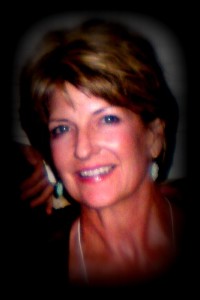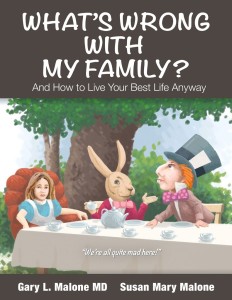Please welcome Susan Malone to It’s Not All Gravy as today’s Wednesday’s Guest. Susan is an author, editor and a regular guest at The Blood Red Pencil. I am so happy to have her here today as she shares a bit about family and writing with a family member.
Thank you for inviting me to be your guest, Maryann. I’m both an author and an editor, with five traditionally published books (one novel and four works of co-authored non-fiction) to my credit. Mainly I write literary fiction, but of course, have to eat! I’ve also had a litany of short stories published. As a freelance editor, over forty books I’ve edited have been sold to Traditional publishers, with two more coming out this year.
Q. Two of the books you have written have been collaborations with your brother. How did that come about?
Fifteen years ago, I was sitting with my sister-in-law at their kitchen table, bemoaning how difficult men were. My brother (a psychiatrist) sauntered through and said, “Men are easy to understand. If you just know these five things, you can not only understand them, but learn to predict their behavior.” I said, “We should write a book!”
Q. Is it harder to work with a family member, then perhaps working with someone you don’t know as well? Pros and Cons?
Not for us. Gary and I have been close since we were little kids, and this is actually our third business venture. When very young, we made and sold potholders. Gary was the biz guy and I was the cute little-girl front person! Then of course I’d ask him for change or something and he’d have to come out of his hiding place. Through our teenage years, we had a swim school. I’ve actually found it easier working with him than any of my other co-authors.
Q. In reading this latest book, I had a hard time trying to discern which parts were written by you and which were written by your brother. Describe how the writing process worked.
A couple of reasons exist why folks are having trouble discerning who wrote what. First off, Gary dictated his theories, and I got a big sprawling amoeba of stuff to work with, mostly in jargon and clinical-ese. I rewrote (and translated) everything he gave me, tossed away a ton when he rambled into the ozone, and identified huge holes that weren’t discussed at all, or glossed over, including adding chapters and organizing everything. Gary actually writes very well, however, when I can get him out of psychiatrist mode, and he wrote his personal vignettes, and many of the others as well. I did very little to those except clean up the grammar and spelling, etc.
The second part is a bit more nebulous. I’ve co-authored enough that I learned a very long time ago to write in the other person’s voice. It’s really weird (and somewhat schizophrenic!), but a gift of mine. That truly helps me in editing as well—once I get into a manuscript, I edit in the other person’s voice.
Q. Are there plans for more books together?
Yes. We have a list of ideas, and haven’t had time to narrow that down yet!
Q. Would you ever collaborate with anyone else?
No. That part of my life is done.
Q. In addition to writing, you offer editing and coaching services. How do you balance your time between the various jobs?
God alone knows! I work a lot. More than I should. Sometimes I take the time to just write. Sometimes I write in the mornings and edit the rest of the day. Sometimes I just edit.
Q. Now, just for fun, what is your family’s favorite story to tell on you?
Once my elementary-school friend and I climbed the big oak trees at the farm and hid, and when we were found we told this long tale about how the deer chased us up there and wouldn’t let us come down. Everyone still calls that grove of oaks “Susan’s Trees”. I started telling stories early J
Q. What did it say about you in your high school yearbook?
I honestly don’t remember!
Q. If you weren’t a writer and editor, what job would you be doing?
Investigative journalist. That was my original training, and I was editor of my university newspaper. I still miss it!
Book Blurb
Family. We all have one. And with the many gifts they bring, along come at least a few lumps of coal—from some friction to downright anger and dysfunction.What’s a healthy family anyway? What’s a toxic one? Where is the middle ground? And how do you navigate your own family relationships to negotiate conflict resolution?
What’s Wrong With My Family explores the problems stemming from even the healthiest to the most destructive ones. Most important, it teaches what issues within you may arise from your own family of origin, and how you can heal from the wounds. A book of hope, it shows that no matter where you came from, you can live your best life anyway.



Not only does the topic sound fascinating, but I love that a book about family was actually written with family. Plus, ya know, the author has such a nice first name.
LOL, yes, Susan, what a wonderful name.
I agree that it is interesting that the authors are related and wrote about family. I’m sure some of the reasons for doing the book stem from personal experience dealing with relationships like that.
Thanks, Susan! And our own family tie has come up with all the interviews we’ve done.
Oh, do we have family experiences . . . LOL!
Thanks again, Maryann!
You’re welcome, Susan. I’m so glad to have you as a guest here. I am preparing to go out of town for an art festival where I am giving a writing workshop, so I may not be able to check in again. Hope you can stop by and respond to any more comments. This will be live the rest of today, then a new post is scheduled for Friday.